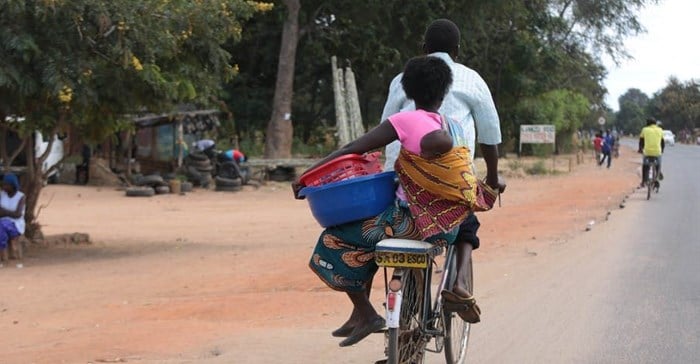Malawi study highlights the importance of men in childcare and nutrition

A recent report showed that the time Malawian women spent caring for children was six times higher than men. The women’s multiple roles and responsibilities typically prevented them from participating in activities to earn income.
Past studies have also shown that women spend more of their income on food and children’s education than men do.
But times are changing. Malawian men are increasingly becoming involved in maternal and child health as well as household chores such as growing, buying and preparing food.
Other studies show that changes in the role of men in mother and child health are gaining momentum, particularly with increased government efforts in the country’s northern and central regions. Many of these changes are driven by health sector policies.
Walking into a local clinic in Malawi, you will likely find posters with images calling on men to take a more active role in housework and children’s and mother’s health. Such messages have become a common feature, attesting to changing times in the country.
Our study of one community in rural central Malawi set out to investigate how interventions by NGOs, the Ministry of Health and traditional leaders – which aim to involve men in mother and child health – are changing the role of men in growing, cooking and buying food for the household.
As the custodians of culture, traditional leaders in Malawi have been central to influencing changes in household roles and responsibilities. They play an important role in assisting in policy implementation in the areas they oversee.
Our study began by reviewing international as well as Malawian policy documents to understand how men’s participation in mother and child health emerged. We conducted in-depth interviews and focus group discussions with both men and women, as well as with policymakers.
Our findings show that some men are becoming more involved in looking for food and cooking. They are also helping women with other chores, including cleaning and caring for children.
What has led to this change?
Findings
We found that while not all men are willing to become involved in women’s and children’s health, there are specific situations that force them to take on “women’s work”. For example, regulations passed by clinics and traditional leaders encourage women to stay at maternity waiting homes from their eighth month of pregnancy.
These maternity waiting places are located close to the hospital to prevent women travelling long distances when they are in labour. The waiting homes have played a central role in reducing mother and child deaths.
But women who stay at these facilities frequently leave other children at home, forcing men to take responsibility for cooking, cleaning and looking after children. Such interventions are unravelling the typical roles men and women are expected to play.
Along with messages from the government and NGOs on gender equality, these interventions are helping undo traditional beliefs about the roles men and women play.
Men who accompany their spouses to antenatal visits are provided with information on the importance of helping women with housework when they are pregnant. As a result, more men are now actively helping women to grow, prepare and buy food.
These interventions are increasing cooperation between men and women, which is important for building well-functioning families.
Besides participating in general housework, men also take children to the hospital and attend antenatal visits with their partners. Thus, men and women in the community work together to make sure that their families are healthy and have food. One woman said,
We work together with our husbands in order to make ends meet. If we see that the food, we have harvested is not enough, we make decisions together with our husbands to say that we should buy some food to top up.
Positive changes
A new understanding of the concept of gender equity is emerging in this community. Gender equality is understood as men and women working together, as opposed to the common misconception that gender initiatives target only women.
Although the men are becoming involved in “women’s work”, when women are pregnant, these changes offer opportunities for policymakers to harness the potential of men in meeting the food needs of the household, and addressing gender equality at the same time.
Although other studies have suggested that women play a central role in food and nutrition, both women and men in our study felt that it was also men’s responsibility to look for food. In many ways this resonates with the traditional hunter role of men. So food, nutrition and agriculture policies that pay attention only to women overlook the important role men can play in promoting their families’ well-being.
Interventions implemented in Malawi’s health sector are creating positive changes in the way in which men and women interact. Agriculture, food security and nutrition policies need to leverage these changes to increase the capacities of men and women to work together in ensuring that their families have access to food.
The important role men play in food and nutrition has long been neglected. Harnessing the complementary role of men could improve food security and gender equality at the same time. This is particularly important as hunger increases globally.
This article is republished from The Conversation under a Creative Commons license. Read the original article.![]()
Source: The Conversation Africa

The Conversation Africa is an independent source of news and views from the academic and research community. Its aim is to promote better understanding of current affairs and complex issues, and allow for a better quality of public discourse and conversation.
Go to: https://theconversation.com/africa










